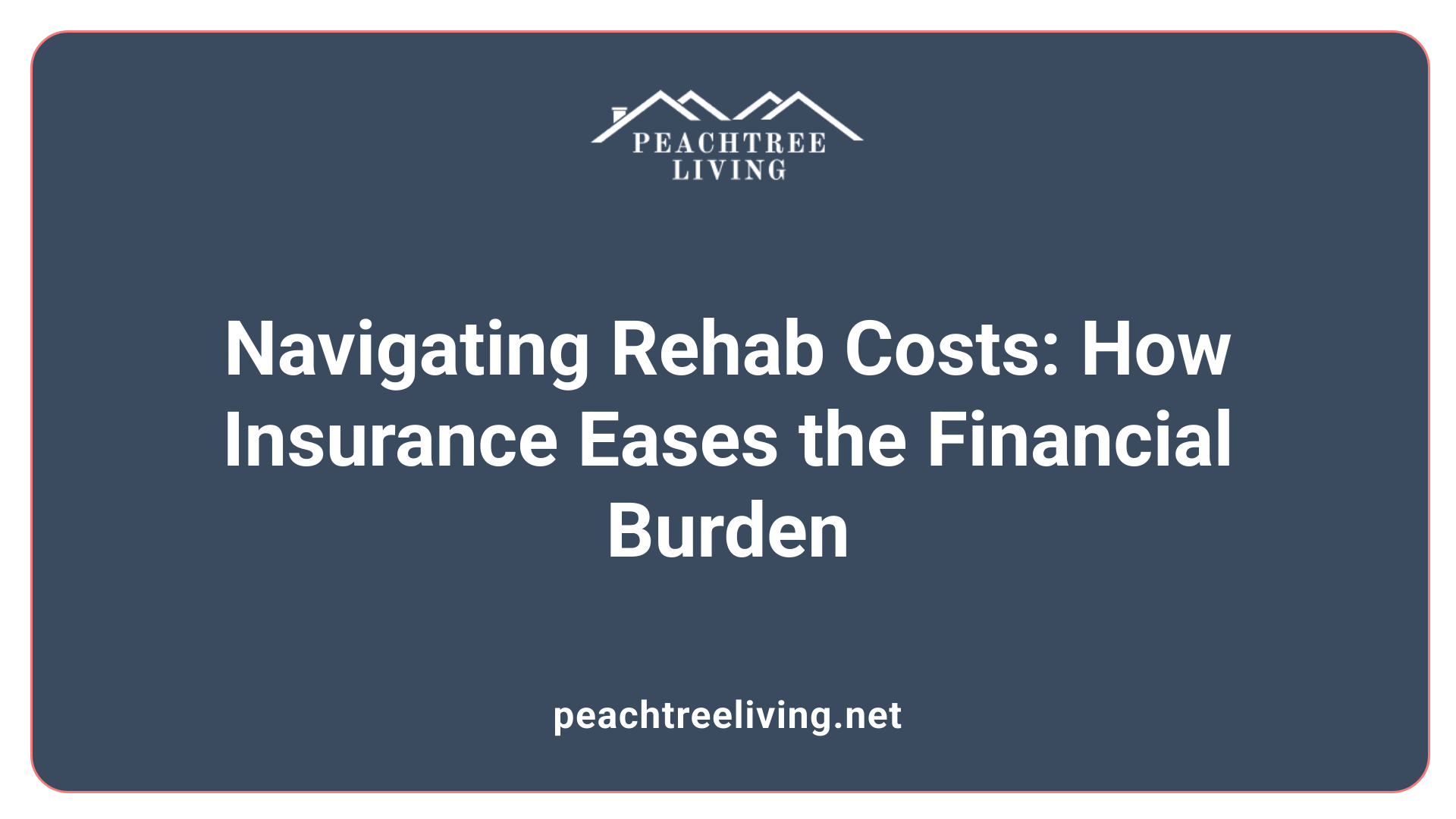Understanding Insurance Coverage for Drug and Alcohol Rehabs
Seeking help for substance use disorder is a vital step toward recovery, but navigating insurance coverage can often feel overwhelming. Many individuals wonder whether their health insurance will cover the costs associated with rehabilitation programs. This article explores how different types of insurance policies support addiction treatment, how to verify your coverage, costs involved, and options for those without insurance. Equipped with detailed insights, you'll be better prepared to access the necessary care and support.
Insurance Coverage for Addiction Treatment: An Overview
Is insurance coverage available for drug and alcohol rehab?
Insurance coverage for addiction treatment is generally accessible through a variety of plans, including private, public, and employer-sponsored insurance. Many health insurance policies include behavioral health benefits that cover various aspects of substance use disorder (SUD) treatment.
Major insurers such as Blue Cross Blue Shield, Aetna, Cigna, UnitedHealthcare, and Tricare typically cover a range of services. These can include inpatient rehab, outpatient programs, detoxification, Medication-Assisted Treatment (MAT), counseling, and aftercare services. Coverage amounts and specific services depend on the individual plan details.
Medicaid and Medicare also provide coverage for qualifying individuals. Medicaid, especially in states like Massachusetts with expanded benefits, often covers detox, residential treatment, outpatient counseling, and medication management. Medicare may cover inpatient and outpatient treatments, although coverage specifics can vary based on plan type.
It's important to note that coverage is not uniform and can vary based on your location, the particular insurance plan, and whether the treatment facility is in-network or out-of-network. Many plans require prior authorization, and some may impose limits on the length or type of treatment subsidized.
To maximize benefits and avoid unexpected costs, individuals are advised to verify their coverage before starting treatment. Contacting your insurance provider directly or consulting treatment centers that offer assistance in navigating insurance advantages can help clarify what costs will be covered.
In summary, most insurance plans—including private insurers, Medicaid, and Medicare—support addiction treatment because these are recognized as medical conditions. With comprehensive coverage, individuals can access necessary services without prohibitive expenses, making recovery more attainable for many.
For further guidance on laws influencing insurance coverage for rehab, such as the Affordable Care Act (ACA) and the Mental Health Parity and Addiction Equity Act (MHPAEA), resources like SAMHSA’s Helpline can be valuable.
Types of Insurance Policies Covering Rehab

What types of insurance policies typically cover drug and alcohol rehabilitation?
Most health insurance plans offer some form of coverage for substance use disorder treatments, including drug and alcohol rehab. Private insurance options, such as Health Maintenance Organizations (HMOs) and Preferred Provider Organizations (PPOs), usually cover many treatment services. These can include inpatient and outpatient care, counseling, detoxification, and medication-assisted treatment.
Marketplace plans established through the Affordable Care Act (ACA) are also required to include mental health and addiction services as essential benefits. Medicaid, the state-administered program for low-income individuals, offers coverage for detox, residential treatment, outpatient therapy, and medication management. Similarly, Medicare provides benefits for inpatient rehab and outpatient services, depending on the plan.
Military insurance programs, like Tricare, also cover limited substance abuse treatments, often with specific limits on the number of treatments allowed.
Coverage isn't limited to just one type of service. Usually, plans include a broad spectrum of care, such as behavioral health treatment, inpatient stays, outpatient programs, medication-assisted treatment (MAT), and counseling.
However, coverage specifics vary widely depending on the individual plan, provider, the state, and whether the treatment facility is in-network or out-of-network. Patients are strongly advised to check with their insurance providers or treatment centers beforehand to clarify the extent of their benefits and any out-of-pocket costs.
In summary, whether through private plans, government programs, or military benefits, most individuals have access to coverage that supports recovery efforts for addiction, protecting them under laws that prohibit denial based on pre-existing conditions.
How to Verify Your Insurance Coverage
 When considering addiction treatment, understanding your insurance coverage is essential to avoid unexpected costs and ensure access to the services you need. The first step is to verify your benefits directly with your insurance provider or through online portals offered by the insurer. Many providers, including those working with treatment centers like The Recovery Village, offer HIPAA-compliant online forms for insurance verification. This allows you to confirm whether your plan covers specific services such as inpatient rehab, outpatient counseling, or medication-assisted treatment.
When considering addiction treatment, understanding your insurance coverage is essential to avoid unexpected costs and ensure access to the services you need. The first step is to verify your benefits directly with your insurance provider or through online portals offered by the insurer. Many providers, including those working with treatment centers like The Recovery Village, offer HIPAA-compliant online forms for insurance verification. This allows you to confirm whether your plan covers specific services such as inpatient rehab, outpatient counseling, or medication-assisted treatment.
In addition to online tools, calling your insurance company's customer service line provides an opportunity to ask detailed questions. Be prepared to inquire about what aspects of treatment are covered, including detoxification, therapy sessions, and aftercare programs. It's important to clarify the specifics of mental health and behavioral health coverage, as these benefits are often included under federal mandates like the Mental Health Parity and Addiction Equity Act.
Understanding your financial responsibilities is equally important. Ask about deductibles, copayments, coinsurance, and any out-of-pocket maximums. These factors can significantly affect your treatment costs and out-of-pocket expenses. Many insurance plans also require prior authorization for certain services, so verifying this in advance can help streamline your treatment process.
Ultimately, reviewing your policy details or speaking directly with your insurer ensures you have the most accurate and personalized information. This proactive step can help you navigate your insurance benefits more effectively and secure the coverage needed for successful recovery.
What questions should I ask my insurance provider?
- Does my plan cover substance use disorder treatments?
- Are there any treatment centers in-network?
- What are my copayments and deductibles?
- Is prior authorization required?
- Are mental health and behavioral health treatments included?
Useful Search Query
- Verifying insurance for addiction treatment
Costs and Financial Aspects of Rehab with Insurance

What are the typical costs associated with rehab under different insurance plans?
The expense of addiction treatment can vary significantly based on the treatment type, facility location, and services provided. Inpatient programs, which often involve staying in a facility for several months, generally cost between $5,000 and $80,000. Outpatient programs, allowing individuals to live at home while attending treatment sessions, usually range from $1,500 to $10,000 over a three-month period.
Medical detoxification, an initial step for many seeking rehab, tends to be priced from $250 to $800 daily for inpatient detox. Outpatient detox services are usually less costly, around $1,000 to $1,500 for a month-long program.
Insurance plans play a crucial role in alleviating these costs. Most plans cover outpatient treatment, detox, and inpatient care to some extent. However, the level of coverage can differ widely depending on the specific insurance policy, the state, whether the treatment facility is in-network, and the length or intensity of the treatment.
How does coverage impact out-of-pocket expenses?
Coverage details significantly influence how much a patient pays out-of-pocket. Many private and public insurance plans are designed to share costs with patients, covering a portion of the treatment expenses. For example, some plans may cover 80-100% of outpatient services, while inpatient recovery might have higher co-pays or deductibles.
Patients are encouraged to verify their benefits with their insurance providers or treatment centers before starting treatment. This step helps clarify which services are covered, preauthorizations required, and potential copayments or coinsurance. Facilities like The Recovery Village and New Era Rehabilitation often assist patients in understanding insurance benefits, helping to prevent unexpected expenses.
How do legal protections improve access to treatment?
Legal laws have strengthened protections for individuals seeking addiction treatment. The Mental Health Parity and Addiction Equity Act (MHPAEA) mandates that health insurance companies offer mental health and substance use disorder treatments comparable to other medical services. Consequently, insurance coverage for rehab programs—whether inpatient, outpatient, or medication-assisted treatment—is often more accessible and less restrictive.
Additionally, the Affordable Care Act (ACA) considers mental health and addiction treatment an essential health benefit. This requirement ensures that most marketplace insurance plans cover necessary services, making treatment options more affordable and accessible for many Americans.
| Treatment Type | Typical Cost Range | Insurance Impact | Additional Notes |
|---|---|---|---|
| Inpatient Rehab | $5,000 - $80,000 | Often covered partially or fully | Varies based on amenities and length of stay |
| Outpatient Rehab | $1,500 - $10,000 | Usually covered by most plans | Less expensive, flexible scheduling |
| Detox Programs | $250 - $800 daily | Coverage depends on plan and facility in-network | Outpatient detox is more affordable |
Understanding these financial aspects can significantly ease the treatment journey. Patients are advised to communicate early with their insurance providers and treatment centers to understand their benefits, identify coverage gaps, and explore financial assistance options.
Variations in Coverage for Different Rehab Programs
Does insurance coverage vary for different types of rehab programs?
Insurance coverage for different rehabilitation options can significantly differ based on the individual’s insurance plan and provider. Most health insurance plans, including those purchased through the Health Insurance Marketplace, Medicaid, and Medicare, typically cover various treatments for substance use disorders. These treatments include detoxification, inpatient or residential care, outpatient programs, and counseling services.
The scope of coverage largely depends on factors such as the type of plan, whether the treatment facility is in-network or out-of-network, and the specific benefits outlined in the policy. Some plans might offer broad coverage that includes all stages of recovery, while others might specify limited coverage or require pre-authorization.
Key points to consider:
- Inpatient Care: Usually covered, but may involve higher copayments or restrictions.
- Outpatient Programs: Frequently covered, with benefits varying by plan.
- Detoxification: Often included but may have limits on duration or provider restrictions.
- Therapy and Counseling: Typically included, especially under plans complying with parity laws.
Verification of benefits for specific programs
It’s crucial for individuals to verify their insurance benefits before initiating treatment. This can be done by directly contacting the insurance provider or the treatment center. By doing so, patients can determine which services are included, whether they require prior authorization, and what portion of the costs may be out-of-pocket.
Insurance limitations and network restrictions
Coverage may be affected by network restrictions, meaning that treatment facilities must be in-network to maximize benefits and minimize costs. Out-of-network services might involve higher copays or be entirely uncovered.
Many providers and insurance companies provide assistance in understanding plan details. For example, organizations like American Addiction Centers and treatment facilities such as The Recovery Village work with insurers to clarify coverage and facilitate access.
In summary, although most insurance plans do provide some form of coverage for various rehab programs, understanding the specifics requires careful verification. The extent of coverage, associated costs, and network restrictions are vital considerations for individuals seeking treatment.
Managing Costs When Insurance is Insufficient
 If your insurance does not fully cover the costs of rehab, there are steps you can take to find financial relief and access the necessary treatment.
If your insurance does not fully cover the costs of rehab, there are steps you can take to find financial relief and access the necessary treatment.
Firstly, contact your insurance provider directly to clarify your benefits. Ask about what services are covered, the process for pre-authorization, and if there are any restrictions or limitations. If your claim has been denied, you can appeal the decision or request an independent review, emphasizing the medical necessity of the treatment.
In addition, many treatment centers offer financial aid programs or sliding scale fees based on income. For example, facilities like The Recovery Village work with patients to create manageable payment plans and assist in securing funding through financial assistance programs.
Explore public resources and state-funded programs. Many states provide treatment services through Medicaid or other public health initiatives that can significantly reduce out-of-pocket costs. Community-based organizations often have programs to help cover or subsidize treatment expenses.
Furthermore, organizations dedicated to addiction support, including charities and non-profit foundations, may offer grants or sponsorships. Doing an online search for "Financial assistance for substance abuse treatment without full insurance coverage" can connect you with specific community programs or national organizations ready to help.
By actively engaging with your insurance and exploring available assistance programs, you can take concrete steps toward affording effective care, despite insurance limitations.
Legal and Treatment Limitations in Insurance Policies

Are there any requirements or limitations for insurance coverage of addiction treatment?
Yes, there are specific requirements and limitations associated with insurance coverage for addiction treatment. Thanks to laws like the Affordable Care Act (ACA) and the Mental Health Parity and Addiction Equity Act (MHPAEA), most insurance plans are now required to cover mental health and substance use disorder services. These laws ensure that addiction treatment benefits are comparable to coverage for other medical needs, preventing insurers from imposing stricter limits.
Under the ACA, insurance providers must offer coverage for addiction services without setting lifetime or annual dollar limits. This means that patients can access necessary treatments such as counseling, detoxification, inpatient and outpatient rehab, medications, and screenings without facing arbitrary restrictions. Additionally, the parity law mandates that mental health benefits, including addiction treatments, follow the same financial and service limits as physical health benefits.
However, coverage details can vary significantly based on the specific insurance plan and location. Some states have additional regulations that expand coverage beyond federal mandates. Currently, 43 states actively require their plans to include substance abuse treatment coverage beyond what the ACA stipulates.
While many services are covered, out-of-pocket costs like deductibles, co-pays, and coinsurance often still apply. Furthermore, certain treatments, amenities, or inpatient stays may be billed separately or subject to specific plan limitations.
Another critical aspect of coverage limitations involves network restrictions and prior authorization processes. Insurance plans often require patients to receive care from in-network providers to benefit from coverage, which can restrict access to certain facilities or specialists. Prior authorization, or pre-approval, is usually required before beginning particular treatments or stays, and failure to obtain it might lead to reduced or denied coverage.
In summary, although federal laws have significantly improved access to addiction treatment coverage, individual plans may impose specific limitations. Patients are advised to verify their insurance benefits and understand their coverage details, including any potential restrictions on treatment types, durations, and amenities, by contacting their insurance provider or treatment facility directly.
Maximizing Your Access to Rehab Through Insurance
Understanding your insurance coverage options for drug and alcohol rehab is crucial in making informed decisions about your recovery journey. While many plans are designed to support treatment for substance use disorders, verifying your benefits, understanding costs, and exploring additional assistance options can significantly reduce financial barriers. Laws like the ACA and MHPAEA have expanded coverage to include essential mental health and addiction services, but individual experiences may vary. Consult with your insurance provider and treatment providers early in the process to ensure you secure the coverage you need to begin and sustain your path to recovery.
References
- National Helpline for Mental Health, Drug, Alcohol Issues - SAMHSA
- Does Blue Cross Blue Shield Cover Drug & Alcohol Rehab?
- Does Insurance Cover Drug & Alcohol Rehab?
- How Much Does Drug and Alcohol Rehab Cost With Insurance?
- Will Insurance Cover the Cost of Drug Rehab in Colorado?
- Does Health Insurance Cover Rehab in Connecticut?
- Does My Insurance Cover Alcohol Addiction Treatment?
- Insurance | Drug and Alcohol Rehab Cost | Hazelden Betty Ford

